Is social media DIY hacks what captivates you? Well, the increasing awareness about the chemicals present in skin care products may have made you switch to natural, homemade ingredients more often as they can mess up your face. The internet is already brimming with various beauty hacks for raising such awareness. But do you trust everything you read?
Not all ingredients in their pure and natural form are suitable for your delicate skin. To ensure you avoid unwanted breakouts, irritation, or allergic reactions, it is crucial to refrain from blindly following social media trends without careful consideration. These trends have the potential to negatively impact your skin’s health. It is essential to understand what is beneficial and harmful to your skin, regardless of whether you prefer chemical-based cosmetics or not.
No matter whether you prefer chemical-based cosmetics or not, it’s essential to understand what is suitable and harmful to your skin. Continue reading if you are willing to find out if a specific product or ingredient is suitable for your skin.
Discover the essential items you should never apply to your face.
1. Paraben
-
- Most skincare products, including foundation, BB creams, shampoo, lotions, and more often contain Paraben.
- Learn the dangers of this harmful chemical, which can trigger hormonal disorders, affect the reproductive organs and fertility, and even increase the risk of cancer.
- Additionally, it’s important to always check the label of a product before purchasing it to avoid potential allergic reactions.
2. Body Lotion
-
- Your facial skin is thinner compared to the skin on other parts of the body.
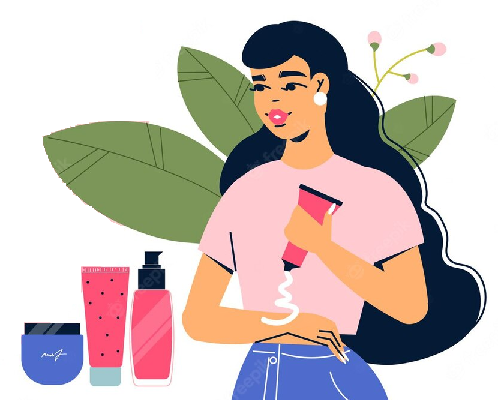
-
- In addition, body lotions are thicker, and more oily, which can clog the pores and lead to breakouts of acne. Furthermore, using these products on your face may also trigger allergic reactions.
- Moreover, it’s crucial to maintain your skin’s moisture to avoid breakouts. It is recommended to use non-comedogenic, gentle, and fragrance-free products created specifically for your face. These products help keep healthy, clear skin and have a lighter, non-greasy texture.
3. Sugar
-
-
DIY beauty hacks often make use of sugar as an ingredient for scrubs. However, it’s not the best choice to apply it as a scrub on your beautiful face.
-
You might end up drying and irritating your skin, causing it to turn red and irritated. It is best to avoid using sugar harshly, as it can cause micro-tears and scratch your soft skin.
-
When applying sugar to your face, it’s important to do so with gentle motions to avoid any potential irritation. Additionally, it’s advisable to avoid using products that contain hard-shaped particles to prevent skin damage.
-

4. Hot Water
-
-
While a steam facial can offer numerous benefits for your face, it should never be substituted with hot water. You shouldn’t wash your hair in hot water, and also your face either.
-
Hot water reduces your skin’s natural moisture, leaving it dry, lifeless, and prone to stretching, although you may find it relaxing. It may also cause a burn.
-
To keep your skin supple, and nourished while maintaining a healthy pH balance, always wash your face using lukewarm water. Facial steam therapy offers multiple benefits for your skin. It helps to open up your skin pores, allowing for better cleansing by loosening dirt and impurities. In addition, it softens whiteheads and blackheads, making removal easier.
-
Also Read : 11 most common beauty myths you should STOP believing
5. Lemon
-
- Lemons are a healthy choice due to their high Vitamin C content. Plenty of beauty hacks found on the internet claim that they can assist in skin brightening and whitening.
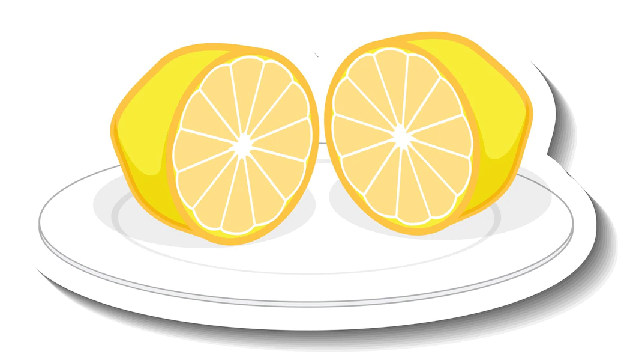
-
- However, it is not advisable to apply raw lemon slices or lemon juice directly on your face. Using raw lemon slices or lemon juice directly on your face can harm your skin. The strong citric acid in lemons can cause burns, breakouts, and irritation.
- Lemon also contains a chemical called psoralen that makes your skin more sensitive to sunlight. It’s best to avoid applying lemon directly to your skin to prevent these problems. Exposing your skin to sunlight after using lemon may cause irritation.
- Additionally, using lemon on your face can potentially cause a chemical burn. Opting for potato or tomato slices is a better choice if you are in need of a DIY bleaching or skin-lightening ingredient, as they are considered safer options.
6. Toothpaste
-
- Toothpaste is a quick remedy often promoted by DIY enthusiasts for drying out blackheads, zits, and pimples, but it is not recommended at all.
- Experts say that using toothpaste on your face can lead to burns and infections.
- Using toothpaste on your pimples can make them redder as it contains strong ingredients that can irritate your skin. When applied, it can lead to a higher production of melanin, which can result in discoloration and the occurrence of dark spots.
- Toothpaste commonly contains mint, an ingredient that can further irritate the skin and cause blemishes. Instead of using toothpaste on your face, it is recommended to choose safer alternatives for better results and to avoid any potential skin issues.
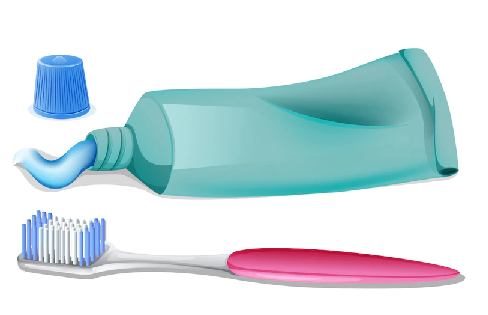
7. Baking Soda
-
- Baking soda is one of the kitchen’s most versatile ingredients and many of people use it for various purposes. You might have considered using it to unclog your pores or treat acne because of its versatility. But now it’s time to stop!
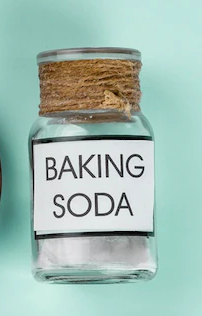
-
- Using baking soda on your face can disrupt the pH balance of your skin and lead to dryness due to its high alkaline nature.
- The skin’s natural pH balance acts as a protective barrier, safeguarding it against bacteria. Disturbing your pH balance can make it difficult for your face to maintain its natural pH, leading to possible breakouts. Hence, it is recommended not to use baking soda on your face.
Images: Freepik: Free Vectors, Stock Photos & PSD Downloads
8. Glue
-
- Peeling off glue is indeed a fun-filled experience. You need to note that using school glue to your face as a mask for the removal of blackheads is not recommended. While it may be a viral beauty hack, it can have negative effects on your skin.
- However, it is unfortunate to note that this hack is not effective in completely eliminating blackheads. Glue can be toxic to your skin.
- Nonetheless, even non-toxic glue can clog your skin pores. It is important to note that this home hack is not effective in cleaning out your pores. This method may result in broken blood vessels, skin irritation, or even damage to the skin’s outer layer.
- So, make sure to avoid using it on your face and consider exploring alternative and safer methods to remove blackheads.
9. Coconut Oil
- Many people use coconut oil in homemade hair remedies as it serves as a good carrier oil.
- Coconut oil is often hailed as a miraculous solution for achieving gorgeous skin. Lauric acid, which is high in coconut oil, is effective for treating acne. It’s not advised to apply it on the face, although it can treat severe dryness or eczema on the body.
- It contains approximately 90% saturated fat, with a viscosity similar to body lotion, and takes time to absorb into the skin. However, it’s important to note that using coconut oil on your skin can lead to clogged pores and subsequent acne breakouts.
- As coconut oil is comedogenic it is not advisable to use for people with oily skin. If you can’t go without applying oil, go for using facial oils only.
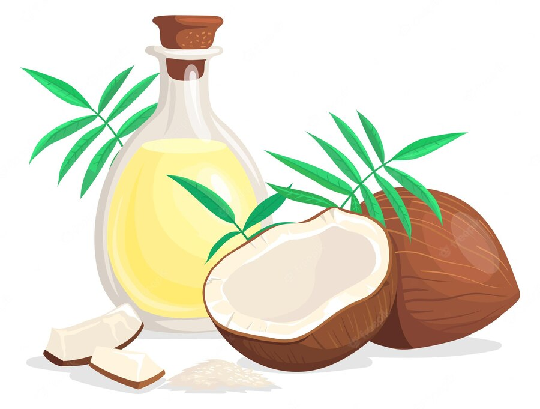
Also Read: What is the best ayurvedic skincare for acne?
10. Wax
-
- While waxing is an effective method for the removal of body hair, it may not be suitable for your face since it has more delicate and sensitive skin than the rest of your body.
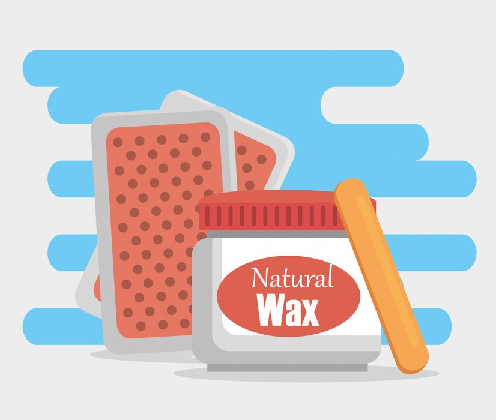
-
- Using wax for facial hair removal can have several negative effects on your skin. It can lead to rashes, ingrown hairs, increased sensitivity, and in cases of extreme situations, even scarring. It is crucial to exercise caution when considering waxing for your facial skin.
- It is advisable to do a patch test before applying wax to your face if you have excessive facial hair and cannot avoid doing so.
- Taking this precautionary step will help you avoid possible irritation or negative reactions on your skin.
11. Hair Spray
-
- It is not recommended to use hair spray to set your makeup, even though it can be useful for fixing runs in stockings or eliminating static cling.
- Using hair spray on the face is not recommended, despite its apparent convenience. It contains ingredients that may cause adverse effects and be harsh on the skin. It’s best to opt for products specifically formulated for setting makeup to ensure the health and appearance of your skin.
- Using hair spray to set your makeup can have detrimental effects on your skin. Hair spray contains alcohol, which can lead your skin to get dehydrated, lifeless, and dry. This can cause you to look older than you are over time. It’s important to avoid using hair spray on your face to maintain a healthy and youthful complexion.
- Hair sprays also have various other chemicals which may irritate the skin, or lead to rashes. The repellents in the hair spray can cause an allergic reaction resulting in skin breakouts and redness.
- To ensure long-lasting results for your makeup, opt for a makeup setting spray specifically designed to set your makeup.
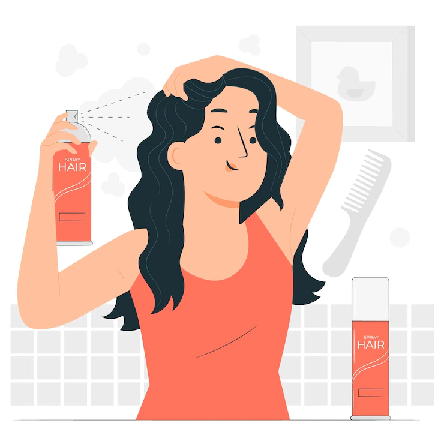
Takeaway
-
-
Your face is an important part of your identity and deserves proper attention and care. Be mindful when it comes to skincare. For your skin, you must know what works and what doesn’t.
-
To maintain fresh, youthful, and healthy skin, it’s important to stay hydrated by drinking plenty of water. You can incorporate face masks made at home, moisturizers, and face creams in your skincare routine.
-
It’s crucial to be mindful of the ingredients in these products and to actively avoid them for your face when you wish to keep healthy, youthful-looking skin.
-
Always remember that your skin is delicate and deserves careful consideration before applying any products to it.
-

